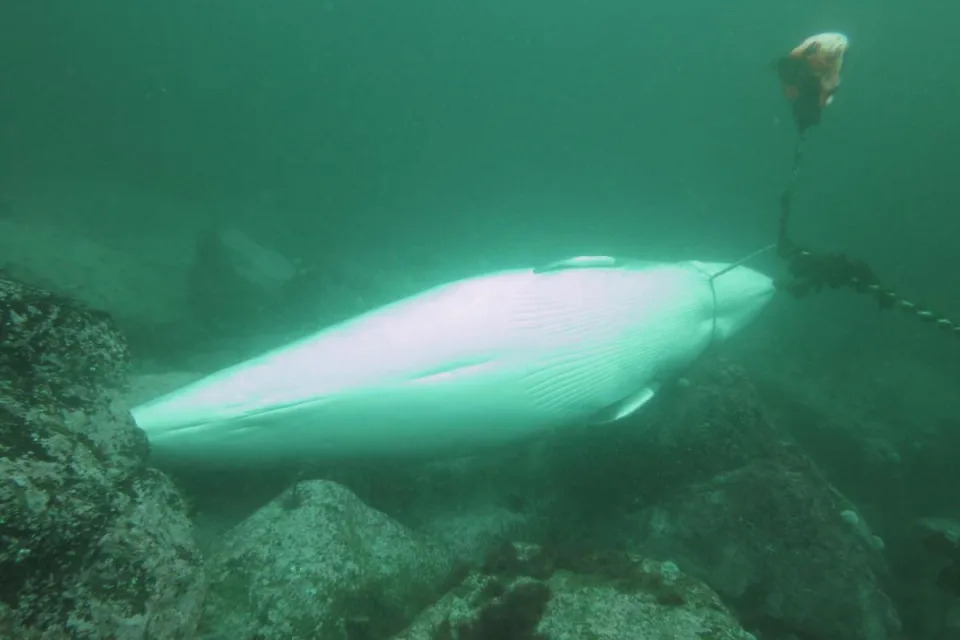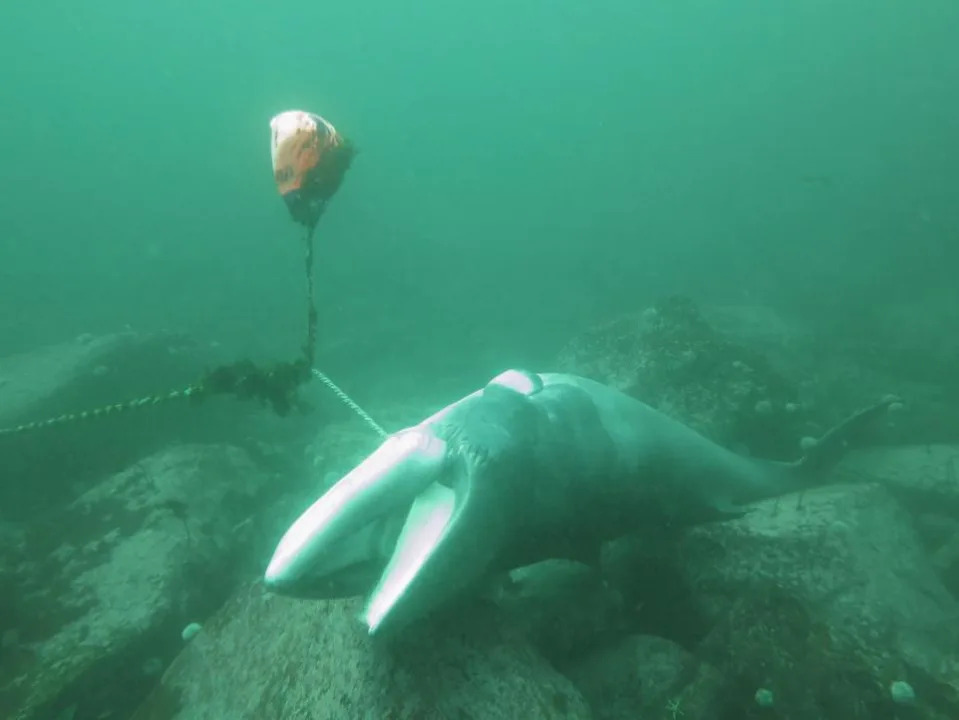Caroline Wilson
Thu, 5 January 2023

Commercial creel fishermen from all around the Scottish coast were interviewed for the study which aims to help reduce marine deaths (Image: SAMS)
At least 36 whales become trapped in fishing equipment in Scottish waters every year, putting them at risk of death or serious injury, new research has found.
Entanglement is the biggest identified cause of death due to human activity for minke and humpback whales, and the extent of the issue has not been well understood.
However, it is hoped a groundbreaking new study, involving Scots fishermen, could help reduce the death toll, after possible solutions were found.
Whales and other marine animals can become entangled in fishing equipment, including the ropes linking creels (also known as pots), which are set around Scotland’s coasts to catch prawns, crabs and lobsters.
READ MORE: Green MSP calls for Loch Leven to become Scotland's first wild swimming hotspot
If whales become caught, they often cannot escape, which can lead to injury and even death.
Not all entanglements are fatal, however even those which are not fatal can potentially pose a serious welfare problem.
There is now a legal obligation in Scotland for fishers to report entanglements.
READ MORE: Call for extra monitoring as beach pollution soars by 42%
A study involving the Scottish Entanglement Alliance (SEA), the Scottish Government, and academics, estimated that in Scottish waters, approximately six humpback whales and 30 minke whales become entangled in creel fishing ropes each year

HeraldScotland:
Other marine species such as basking sharks and dolphins were also recorded to have been entangled.
Commercial creel fishermen from all around the Scottish coast were interviewed and their contribution allowed the researchers to better understand the nature and extent of entanglements in Scotland’s waters.
The study showed that a high proportion of entangled whales had become caught in the groundline, the rope that links creels together on the seabed.
As groundline is usually made from rope which floats, it can form arches in the water between creels in which basking sharks or whales can get caught by their mouths, flippers or tails.
READ MORE: Scottish marine scientists on the hunt for 'alien' sound of elusive dolphins
Researchers said this key finding led to a possible way forward in addressing this problem.
If the groundline is made of rope which sinks rather than floats, it will lie on the seabed, and will not pose an entanglement risk.
This has shown the way for a new plan to trial sinking groundlines in the Scottish fishing industry.
Russell Leaper, from the International Fund for Animal Welfare, lead author on paper, said: “Our current understanding of the extent of entanglements in Scottish waters only became apparent through this study and the valuable contribution made by the fishermen who participated.
“There are many cases globally where the problem of marine animals becoming accidentally caught in fishing gear is very hard to solve. But here in Scotland, we can see a way forward, and the key to our success is working together with fishers.”
Susannah Calderan, a research fellow at the Scottish Association for Marine Science (SAMS) in Oban and report co-author, said: “Whale and Dolphin Conservation (WDC) have now received funding from the Scottish Government’s Nature Restoration Fund, managed by NatureScot, to facilitate trials of sinking groundline in Scottish creel fisheries, and understand how it might be implemented in a way that’s practical for fishers and beneficial for the marine environment.
“This wouldn’t be possible without different organisations including the creel fishing industry working together, and I’m optimistic that we can progress solutions in this fishery, which otherwise has a relatively low environmental impact.”
Bally Philp from the Scottish Creel Fisherman’s Federation (SCFF), a SEA partner, added: “It’s great to see Scotland’s fishermen are at the forefront of understanding and addressing the issue of marine animal entanglement.”
No comments:
Post a Comment